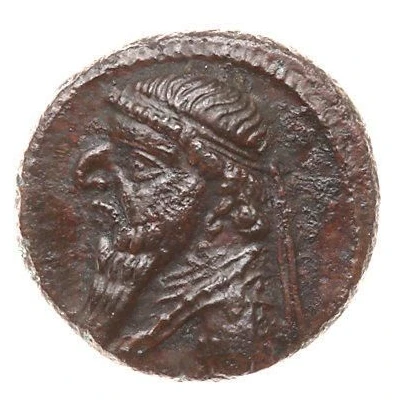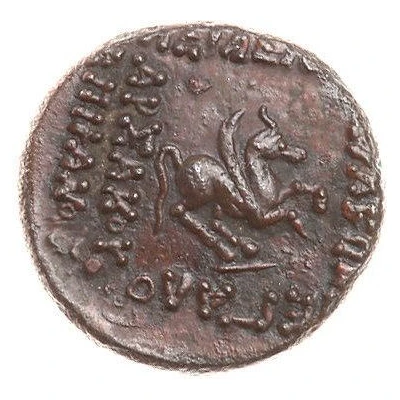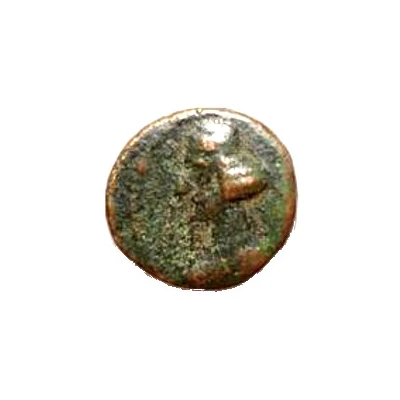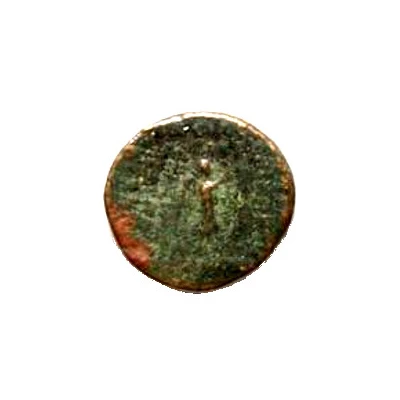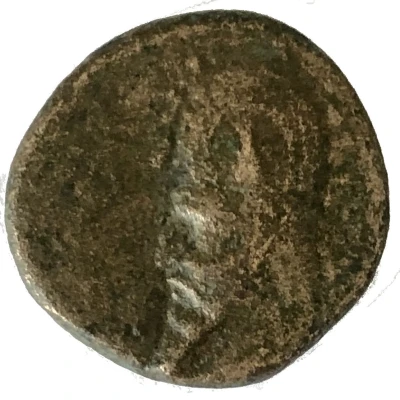
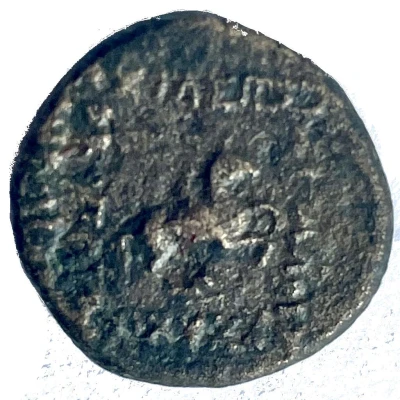

© Michel Monteiro
Tetrachalkous - Sinatruces 95 BC - 90 BC
| Copper | 3.3 g | 15.6 mm |
| Issuer | Parthian Empire (Parthian Empire (247 BC - 224 AD)) |
|---|---|
| King | Sanatruces I (93 BC - 70 BC) |
| Type | Standard circulation coin |
| Years | 95 BC - 90 BC |
| Value | Tetrachalkon (1⁄16) |
| Currency | Drachm (247 BC-224 AD) |
| Composition | Copper |
| Weight | 3.3 g |
| Diameter | 15.6 mm |
| Thickness | 2.7 mm |
| Shape | Round (irregular) |
| Technique | Hammered |
| Orientation | Medal alignment ↑↑ |
| Demonetized | Yes |
| Updated | 2024-10-10 |
| Numista | N#340297 |
|---|---|
| Rarity index | 97% |
Reverse
Pegasus flying right; no border; five-line Greek inscription.
Script: Greek
Lettering: ΒΑΣΙΛΕΩΣ ΜΕΓΑΛΟΥ ΑΡΣΑΚΟΥ ΘΕΟΠΑΤΟΡΟΣ ΝΙΚΑΤΟΡΟΣ
Comment
Sellwood type 33 coins were originally attributed to Sinatruces by Sellwood (1971) but revised to Gotarzes I by Sellwood (1980). Recent research shows the type likely does belong to Sinatruces.
Mitchiner ACW 551
Interesting fact
One interesting fact about the Tetrachalkous - Sinatruces coin is that it features a unique blend of Greek and Persian design elements. The obverse side of the coin depicts a bearded king facing right, wearing a royal diadem and a necklace, while the reverse side shows a seated goddess holding a scepter and a small figure of a lion. This fusion of styles reflects the cultural exchange and influence that occurred during the Parthian Empire's reign over a vast territory that stretched from modern-day Iran to parts of Central Asia and the Caucasus region.
